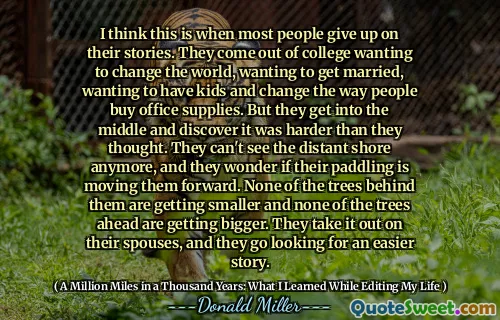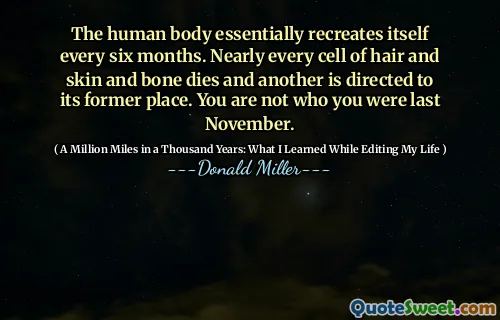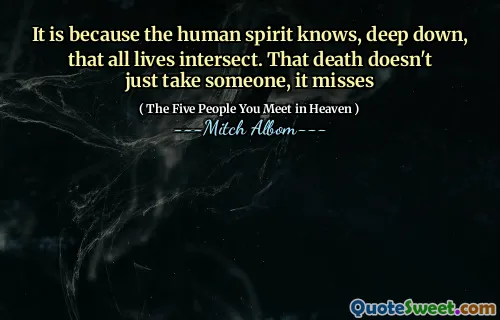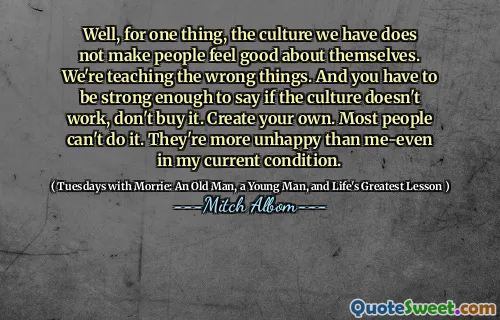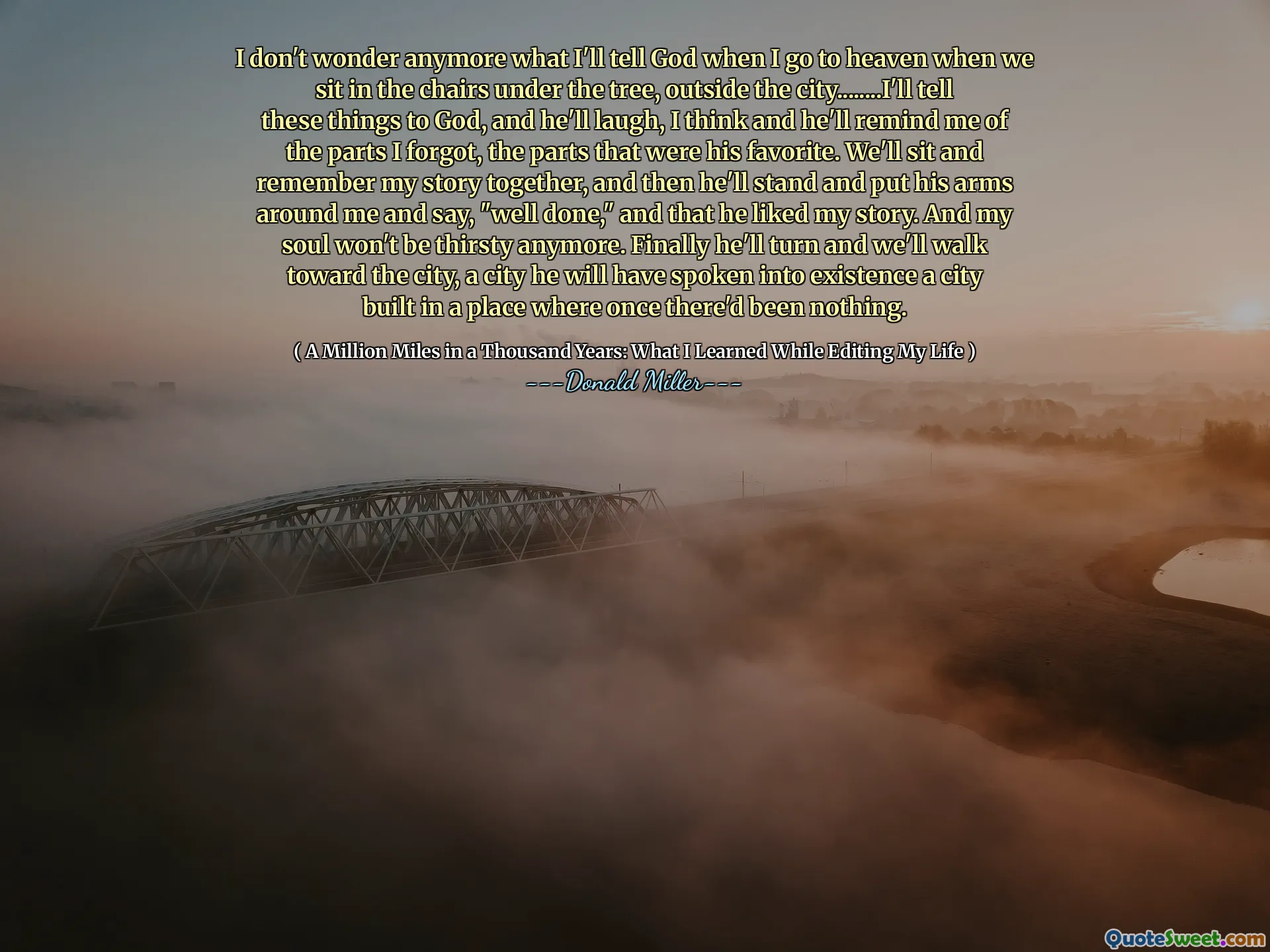
木の下、街の外の椅子に座って天国に行くとき、私はもう神に何を言うのだろうと思いません........私はこれらのことを神に伝えます。私たちは一緒に座って私の物語を覚えています。そして、彼は立ち上がって私の周りに腕を置き、「よくやった」と言い、彼は私の物語が好きでした。そして、私の魂はもう渇きません。最後に彼は向きを変え、私たちは彼が一度何もなかった場所に建てられた都市を存在する都市である都市に向かって歩きます。
(I don't wonder anymore what I'll tell God when I go to heaven when we sit in the chairs under the tree, outside the city........I'll tell these things to God, and he'll laugh, I think and he'll remind me of the parts I forgot, the parts that were his favorite. We'll sit and remember my story together, and then he'll stand and put his arms around me and say, "well done," and that he liked my story. And my soul won't be thirsty anymore. Finally he'll turn and we'll walk toward the city, a city he will have spoken into existence a city built in a place where once there'd been nothing.)
この箇所で、著者は、彼が天国で神と持つことを想像する会話を振り返ります。彼は、彼らが木の下に座って、彼の人生から物語や思い出を共有する穏やかな環境を想定しています。彼は、神が見落としていたかもしれない特別な瞬間を強調し、すべての経験が重要であるという考えを強化すると予想しています。この親密な交換は、著者と神の間のつながりと理解の感覚を描いています。
感情は、著者の人生の物語の承認を表明する神からの慰めの断言で頂点に達します。この安心感は、彼の魂の渇きの癒しによって象徴される、充実感と満足感につながります。シーンは、両方とも新たに作成された都市への旅に着手し、希望、redい、そして新しい始まりの約束を具体化することで終わります。この画像は、人生を超えて自分の目的における平和と連続性の感情を呼び起こします。


